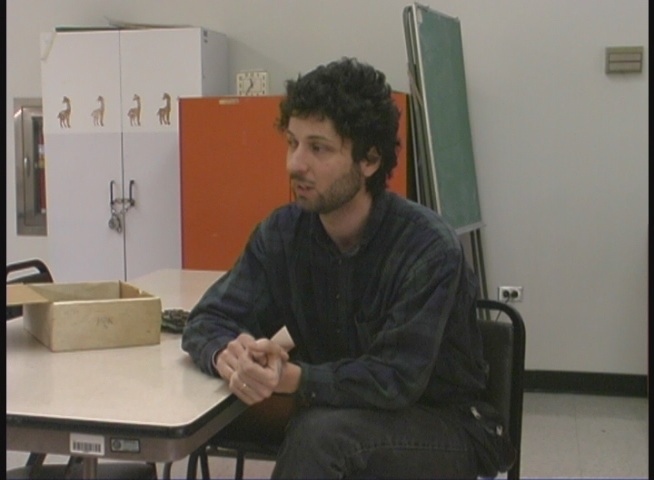Peter turned out to be one of my secret weapons, one I became aware of very soon after the announcement of the BBS Documentary. He contacted me in e-mail a day or two after word of my research came out, and had several major points he wanted me clear on: the BBS story was from the mid-west, and while the coasts had done a lot for the history of telecommunications, to tell the true and rightful story about the BBS, the mid-west (and specifically Chicago) should get its due.
Unlike a lot of others who were more than willing to give me demands and rules
about how the documentary would proceed, Peter than proceeded to back up his
letters with article citations, contacts e-mails for important figures, and
invitations to come to Chicago and attend various events related to BBSes. And
now, looking back, this is precisely what he did, on multiple occasions. Through
his efforts along with others, I interviewed Ward Christensen, and entirely
through his efforts alone, I interviewed Randy Suess. Since they're the canonical
creators of the BBS, I owe quite a bit of debt to him.
Peter's a bookish sort of fellow, intensely into research and into both the
depths and heights of politics and sociology. He considers himself an outsider
to the revolutions of telecommunications, so as he instructed me on who to talk
to and where to go, he never once suggested himself. When someone contacted me
saying "you simply cannot make a BBS documentary without interviewing me", I
took that more as a challenge than anything else. Peter never did that, and so
at the CACHE meeting I attended to interview folks, I made it a point to tell
him to sit in front of the camera.
Peter only got about 20 minutes before his shyness/lack of self-importance
brought the interview to a halt, but he had some interesting things to say
about the roles of hackers and early BBS pioneers in changing the face of
technology.
I saw Peter several times during production, including the very-late Suess
interview, and each time it was reminiscent of hanging out after college classes
with a buddy who was deep in his term project, who could spare some time to
talk about life and politics (and maybe while the night away doing so) but who
was obviously focused on some more grand projects of the mind, far away from
the evening's events. I'm happy to have known him.
